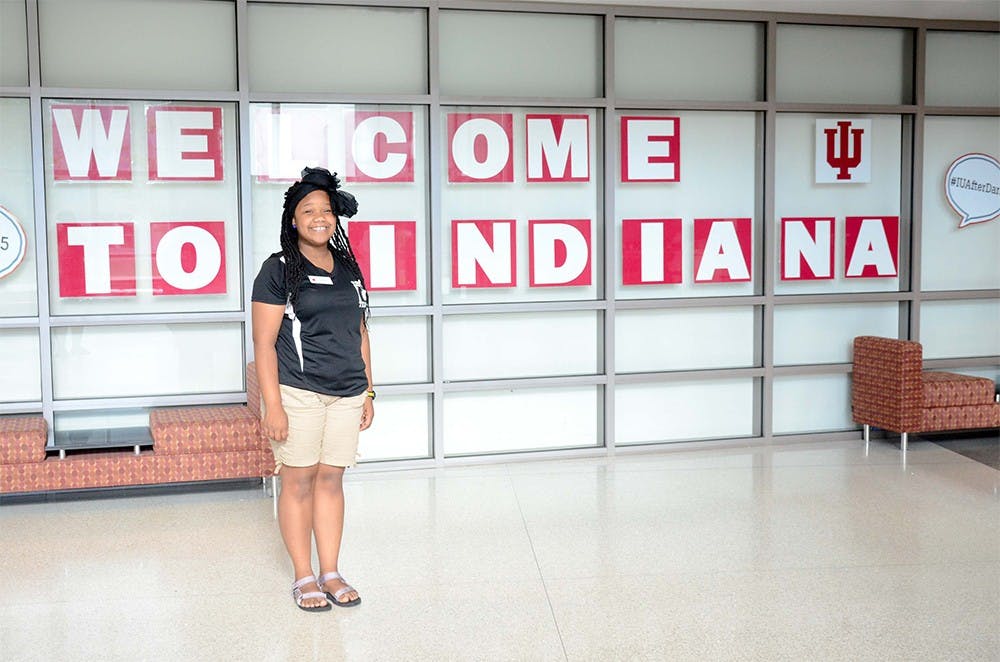Burr, a junior next year, just finished her first summer as an orientation leader, a job she took because she didn’t want other students to have the same experience she had two years ago.
“I wanted to make sure that students felt better about being here, and I was pretty nervous as well, so I wanted to make sure I connected with those students to get them excited about being here, to get them to relax and realize everything’s going to be fine,” Burr said.
The O-Team is a select group of students who stay on campus over the summer to lead incoming freshmen through New Student Orientation. Each individual’s skills and talents are given the opportunity to thrive in several leadership positions during NSO, which ended Tuesday. Members can start as orientation leaders or program assistants.
This was Brady Koetting’s second year as a member of the O-Team. As a rising junior, Koetting’s performance his sophomore year earned him a place on the leadership team. The leadership team decides who moves forward through an application process.
The recruitment process begins in late November or early December, Koetting said. While the O-Team targets student groups they think would be interested, all students are welcome to apply, even seniors who graduate but remain in Bloomington during the summer.
Once students apply and are given the proper information, a two-step interview process begins. After applying, everyone goes to the group stage, Koetting said. The group interview is to evaluate how applicants work in teams, how they facilitate discussion and more.
After the leadership team makes their decisions on who should remain in the candidate pool, the next step is an individual interview with more personalized questions to determine more about the applicants, Koetting said.
“A lot of people sort of think of orientation leaders as the uppity, positive, crazy, energetic, cheesy people, but I think I’d go insane if everyone was like that, so yeah, the goal sort of is to have people to represent all different kinds of campus,” Koetting said
After students are notified via email they have been chosen, O-Team members are required to take an eight-week class. Members who are orientation leaders learn about student development theory, such as what students are thinking when they first come to college, team building and how to work with different kinds of people.
“Orientation leaders are the people you will see leading the groups around, giving presentation, facilitating,” Burr said.
Program assistants are trained how to handle the program’s office work, such as being prepared to answer the NSO’s hotline, 812-855-HELP, which can receive any range of questions.
When the summer comes, there is a two-week training period prior to the first NSO in which the leadership team brings together all the resources from across campus mentioned throughout Orientation.
“We talk about the messages they would like us to tell the students coming in so anything from UITS, to Library Services, to the IMU library...they all come in and we get that information,” Koetting said.
During this time, O-Team members also learn about proper ways to approach topics students or parents might ask them, such as “What is the drinking culture at IU like?” to which Koetting explained you don’t have to be a part of the drinking culture to be part of the IU culture. O-Team members know that many subjects should be addressed in a delicate way, they try to put in their own experiences while also representing IU well.
“We’re definitely intentional in our vocabulary, so instead of ‘dorm’ we say ‘residence hall,’ because you do more in your residence hall than just sleep,” Koetting said. “One thing that we definitely try is to be honest about our experiences here at IU while at the same time still leaving it broad enough to be applicable to other people.”
Throughout the New Student Orientation sessions, all O-Team members meet daily for 8:00 a.m. meetings in which they discuss their plans, schedules changes and how they can improve for the day, Burr said.
Halfway through the orientation sessions, O-Team members are given a progress report of the feedback from students and parents. O-Team members are able to reflect on their feedback over the Fourth of July weekend.
“We get better by the day,” Burr said. “It was really helpful for me because although we all get trained the same, people are going to do things a little differently.”
New Student Orientation is always rearranging and updating their program in order to keep it fresh and engaging, adjustments include allowing parents more time to stand up and stretch thr oughout their informative meetings.
While students on the O-Team are provided with on-campus housing, meal plans and an hourly wage of $8.50 per hour throughout the summer, first-year orientation leader Alexis Burr finds the job itself more rewarding.
“I would do this even if I wasn’t paid to do it,” Burr said. “It’s so fun. When you take the time to learn every students’ name and remember it even by the end of the day, that really helps them open up and have a more personal experience.”






